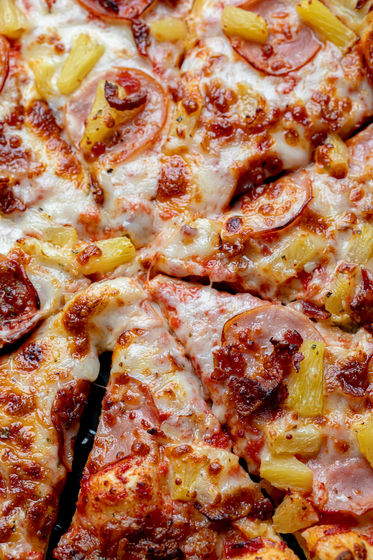Food photos clearly show a tendency that 'the higher the calories, the better'

The epidemic of the new coronavirus infection (COVID-19) has made it difficult to eat out, and more and more people are posting photos of their own dishes. Ethan Panther and Matthew Philippe, authors of the paper, explain the new findings on these food photographs that 'high-calorie foods are more attractive.'
Content Hungry: How the Nutrition of Food Media Influences Social Media Engagement --Pancer ---- Journal of Consumer Psychology --Wiley Online Library
#FoodPorn: People are more attracted to social media content showcasing fatty foods
https://theconversation.com/foodporn-people-are-more-attracted-to-social-media-content-showcasing-fatty-foods-160221
With the rise of SNS, the culture of 'posting food images' has become common, and 440 million posts have been posted on Instagram '#Food ' to '#Foodporn ( so-called brilliant food photos)'. Has received 260 million posts.
Panther and his colleagues analyzed Buzzfeed's Tasty , which boasts over 100 million followers, among the accounts that post food photos. How nice! From the number of engagements such as the number of replies, the number of replies, and the number of shares, we determined the conditions for 'cooking that attracts people'.
View this post on Instagram
Comparing the number of engagements with the nutritional value (estimated value) of the food itself, it was found that 'calorie density (calories per weight)' had a positive effect on the number of engagements. Furthermore, it was suggested that 'saturated fat' tends to be particularly important among nutritional values. Panther and colleagues then investigated posts on Yummly.com , a community website for cooking recipes, and found that 'the more saturated fats a recipe contains, the more bookmarks it tends to have.'

As to why calorie density has a positive effect on engagement, Panther and colleagues say, 'The human brain tends to be strongly attracted to foods that it perceives to be valuable, and high-fat, high-calorie foods are a happy diet. It is usually thought that it will lead to an experience. ' In terms of high-calorie foods produce a happy dining experience relates to nutrition research from, related to the pleasure of emotion in the brain and eat a high-calorie food dopamine has been found that is secreted, from this It is said that human beings feel better just by looking at food photos.
Panther and colleagues say the findings are in line with the food-specialized photographer's technique of improving the appearance of Mexican food with the WD-40 rust preventive lubricant spray. He pointed out that it may be possible to raise the attention of healthy foods such as vegetables by using it. He argued that this analysis of what factors increase the attention of food photography is significant because food photography affects 'what people eat'.
Related Posts:
in Junk Food, Posted by darkhorse_log







